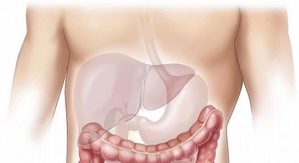Having a good night’s sleep and avoiding junk food is essential for keeping the liver healthy, said Dr. S.K. Sarin, Director of the Institute of Liver and Biliary Sciences (ILBS), on Friday.
He said that junk food, as the name suggests, should be discarded as its regular consumption can significantly impact liver health.
“The word’ junk food means it is junk. It needs to be thrown in the trash. But if you think your stomach and intestines are dustbins, put that food inside. Otherwise, avoid, don’t use it,” Sarin said, in a post on social media platform X.
Junk food, which is rich in unhealthy fats, sugars, and processed ingredients, increases the risk of obesity, high cholesterol, and type 2 diabetes. These diseases then raise the chances of non-alcoholic fatty liver disease (NAFLD) and progress to more serious complications like cirrhosis and liver cancer.
Sarin also urged people to get a good night’s sleep and avoid eating late, as it may affect the gut bacteria, which are crucial for maintaining good health. Studies have shown that people with poor sleep are at increased risk of fatty liver disease.
Further, eating late at night has been linked to a higher risk of significant fibrosis — a sign of liver damage. This is because the body is unable to process fat and carbohydrates during sleep, resulting in their accumulation in the liver.
“Sleeping late and eating late-night food is not a great idea, because the bacteria in your intestines, which process the food, will also sleep late. Restorative good sleep is the best thing,” the leading hepatologist said.
Sarin advised people not to jeopardise their health by chasing “money, power, and positions.” Instead, maintaining “a sound healthy body and a good night’s sleep” is essential as these are the “only two things which give happiness in life”, the expert said.
NAFLD, currently termed metabolic dysfunction-associated steatotic liver disease (MASLD), is a chronic liver disease that occurs when fat builds up in the liver in people who don’t drink much alcohol. It can affect people with diabetes, obesity, high blood pressure, or high cholesterol.
Fatty liver disease is emerging as an essential cause of liver disease in India, affecting about three in 10 people in the country.
In September of last year, the Union Health Ministry released revised operational guidelines and a training module for MAFLD to promote early detection and enhance patient care and outcomes related to the disease.
–IANS





